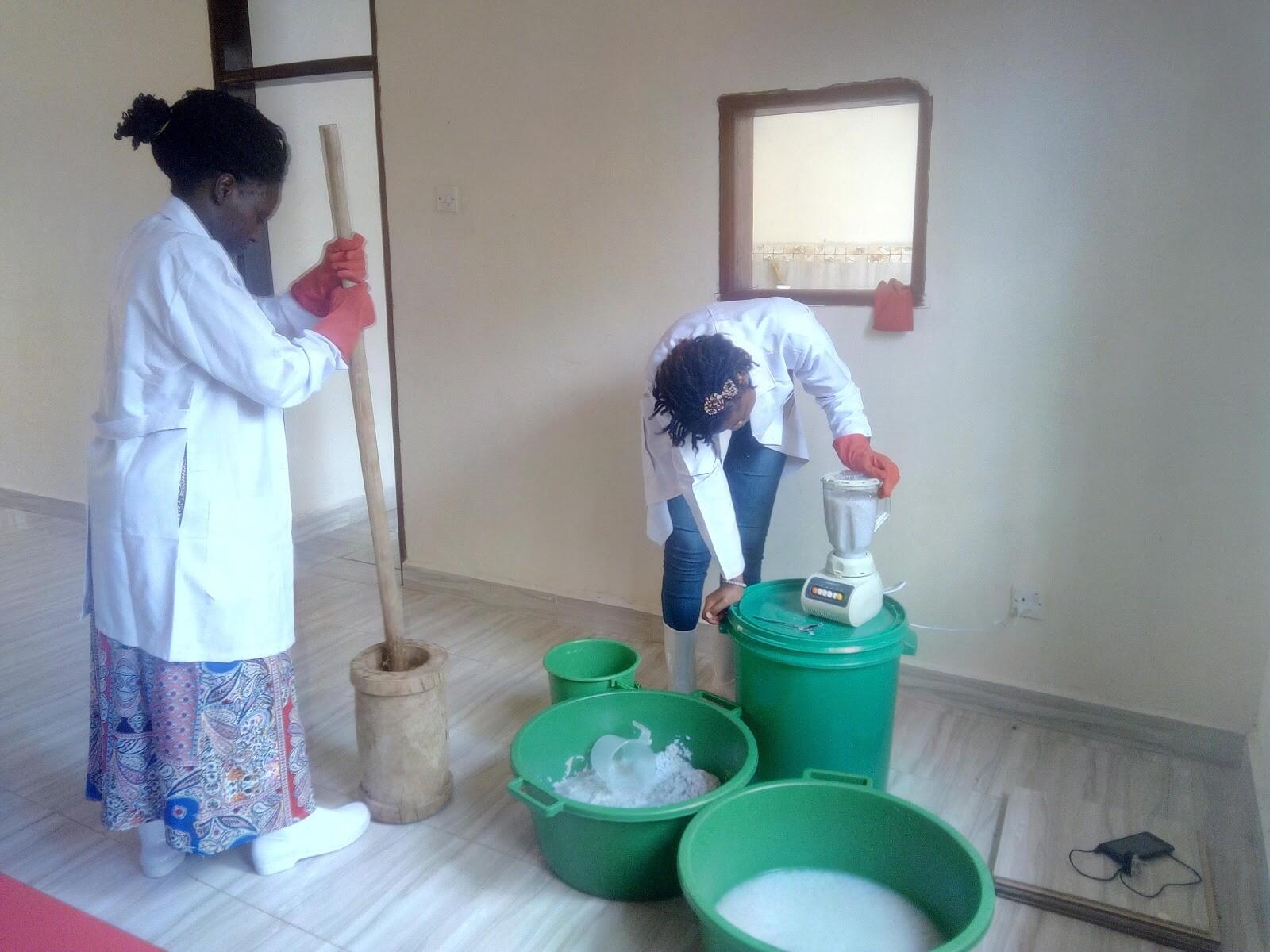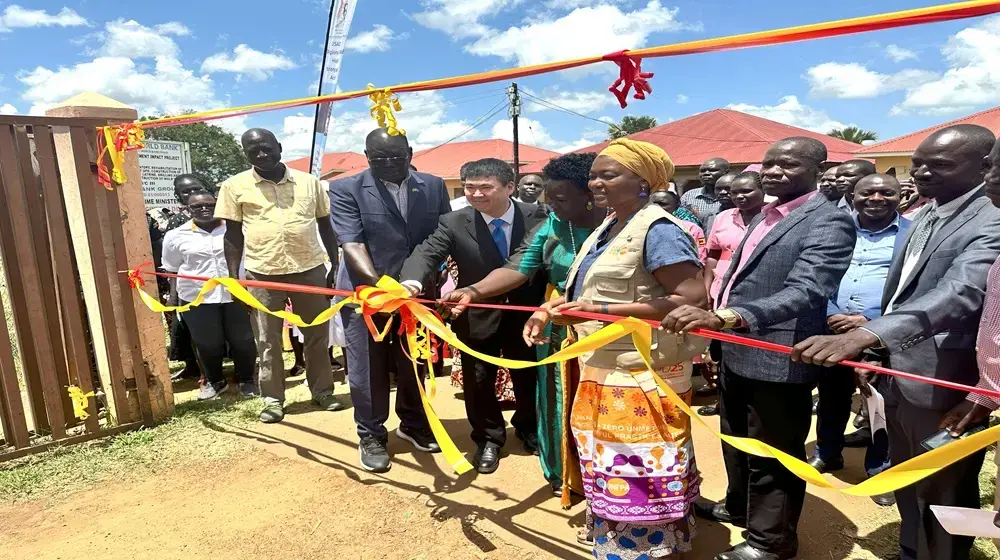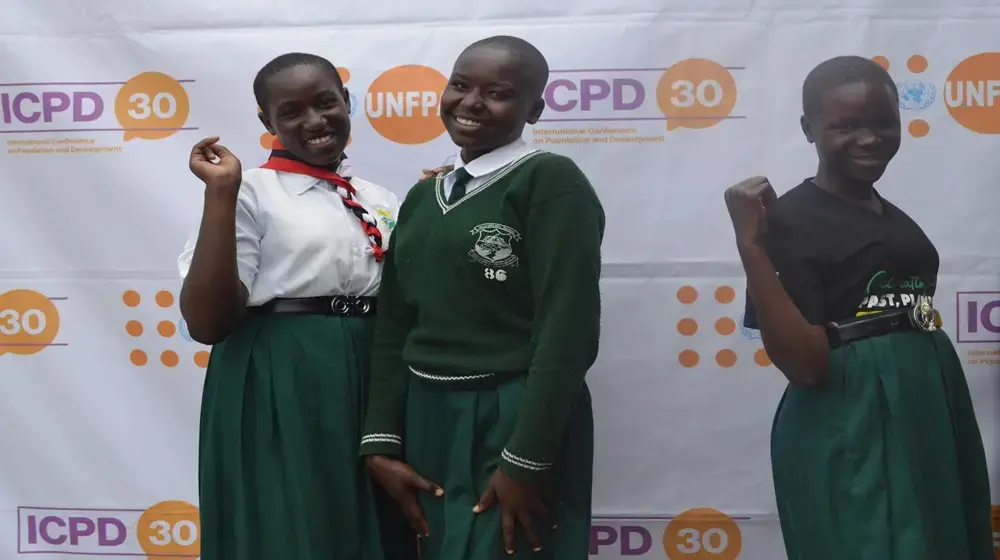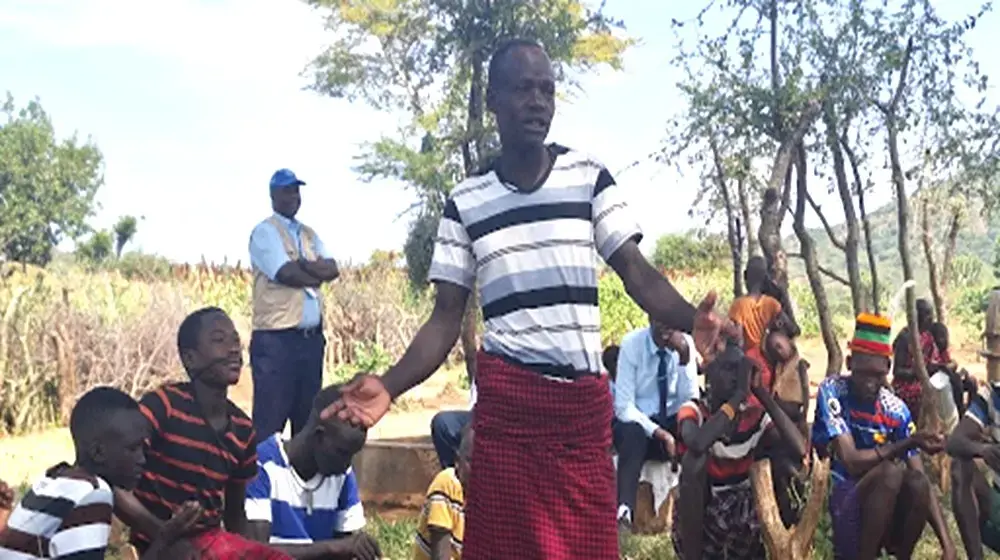In Uganda, menstruation continues to be shrouded in taboos, myths, and misconceptions, with many girls and women struggling with limited access to hygienic menstrual health products. Although menstrual hygiene management research has not been conducted at national level in Uganda, the Netherlands Development Organization (SNV) and International Water and Sanitation Centre (IRC) reported that about half of girls in primary schools from seven districts (Arua, Adjumani, Bundibugyo, Kasese, Kyenjojo, Lira, and Soroti) miss 1-3 school days per month during menstruation (Study on Menstrual Management in Uganda, IRC 2013).
In 2017 under UNFPA’s Up Accelerate initiative (a social innovation incubator that seeks to empower young micro-entrepreneurs to turn their business ideas into healthcare start-ups that address persistent sexual and reproductive health challenges), a young innovator Ms. Noelle Aryanyijuka teamed up with four of her peers to contribute to addressing the problem of girls missing school due to their menses due to lack of access to affordable menstrual health products. The team came up with the idea of producing the EcoSmart, a unique sanitary pad, made out of recycled sugar cane residue.
But this idea was only the start of a long process needed to turn the pads into a market-ready product for girls and women in low-income settings.
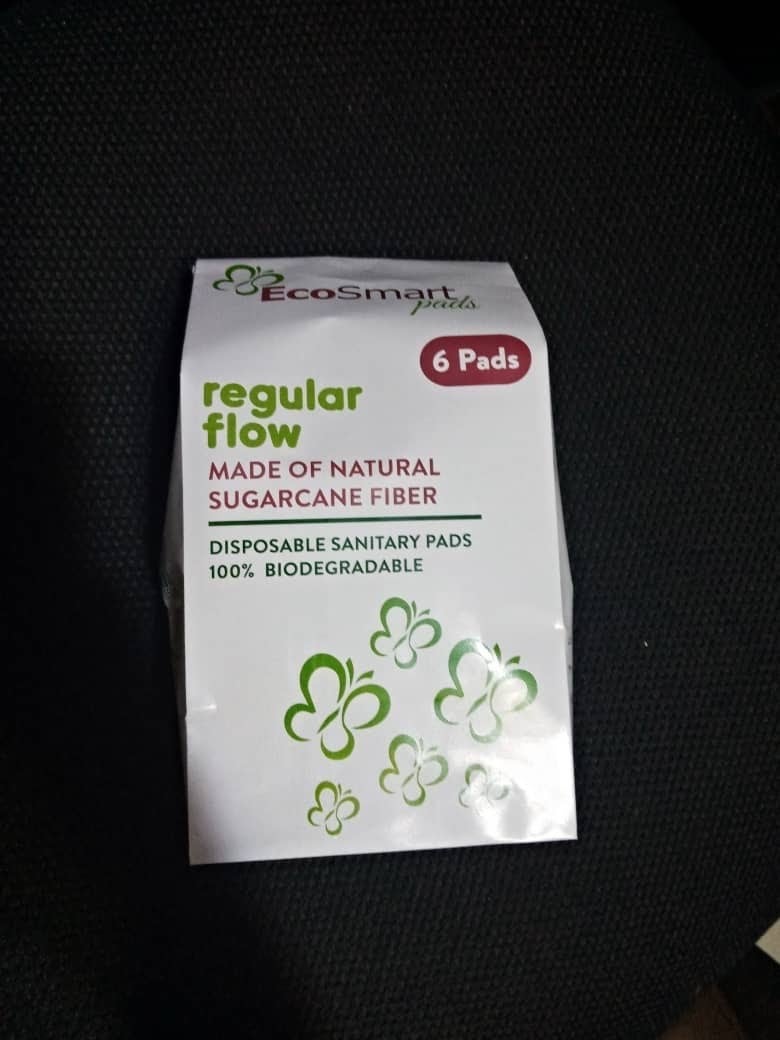
the UNBS. Photo source: EcoSmart Uganda
According to Aryannyijuka, the team at EcoSmart managed to acquire a production facility and manufacturing equipment essential for producing sanitary pads. But the pads produced would have to be approved by the Uganda National Bureau of Standards (UNBS) so as to get them to market.
In mid-2020, after a sample pad was submitted to UNBS, Ecosmart passed 11 out of 14 established standards.
“The product testing phase was going to determine if we would be able to move to market or not, or have to go back to revise the entire production process,” said Aryanyijuka. “We were worried and it was a moment of truth for us. When we did the first testing we didn’t even expect the first good results we got because it took two weeks to make those samples due to reduced staff from COVID restrictions. Passing those 11 out of the 14 was a confirmation that we were on the right track.”
However, the team still had to pass the remaining three requirements. The team was not discouraged by the result. Through the support of UNFPA, and with technical and financial support from the Kao Corporation of Japan, the EcoSmart team pushed on. They were able to address the problems identified by UNBS including making sure that the product met water solubility standards and had an acceptable color.
After many months of hard work amid delays caused by the COVID-19 pandemic, EcoSmart Uganda was finally able to celebrate an important milestone. They passed all the requirements set by UNBS, which meant their sanitary pad was one step closer to reaching girls in resource-poor settings. This was an important achievement for them to not only move forward in testing and production but also to gain a second round of funding for scaling up in 2021. UNFPA strongly supports interventions in menstrual health management and increasing access to hygienic methods of managing menses, especially for adolescent girls.
“Now that we have passed all the requirements, we will be able to move into Phase II of our production process. We can test our sanitary pads with girls in communities who need them most and get their feedback to be sure it meets their needs. We can also scale up and strengthen our production facilities to produce more pads more efficiently,” said Aryanyijuka.
At the end of the grant period, Kao Corporation reviewed the progress made by EcoSmart and were impressed. As a result, Kao Corporation agreed to give another donation of approximately $75,000 USD to UNFPA to support EcoSmart to scale up and refine their production processes during the next year.
“We are so excited about the new grant,” Aryanyijuka said when receiving the news about their new grant. “We had set a target for 2020 to be closer to launching the product because we have been at it since 2017; it’s been quite a long time. Passing the UNBS milestone and Kao confirming their support for a second phase is so exciting for us. Our trials and errors are paying off. We can see the whole picture coming together and are really excited about doing all this work in 2021,” she adds.
Once EcoSmart is able to test and produce their pads for the market, girls and women across Uganda will have access to low-cost disposable sanitary pads that are also biodegradable and environmentally friendly.
Written by Lisa Hartwig

